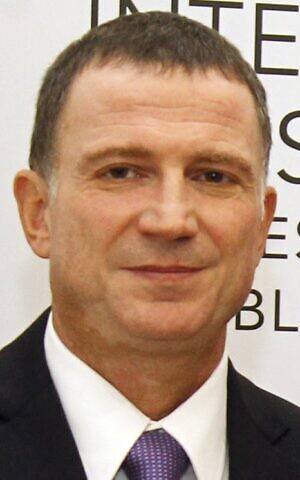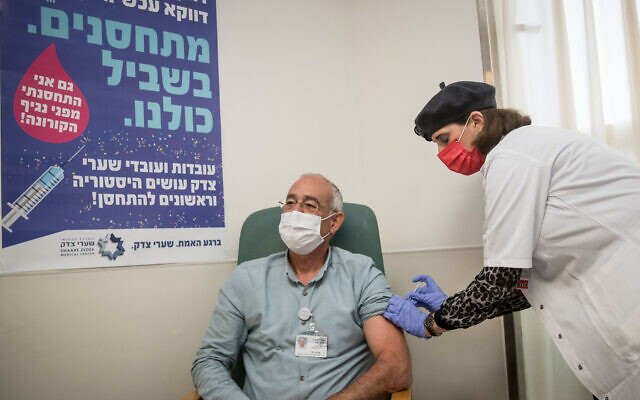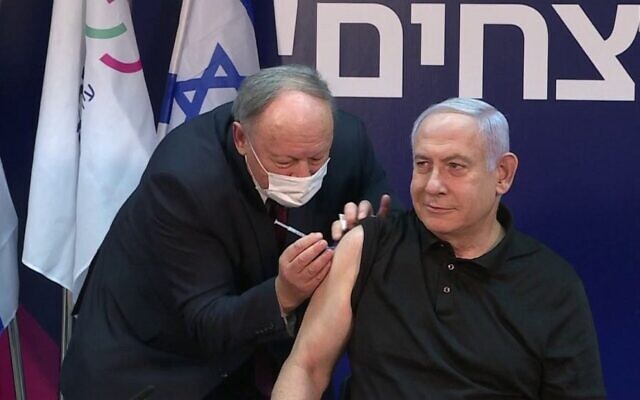COVID Vaccinations for Israelis Started Dec. 19
Studies indicate that more than half of Israelis are hesitant to receive the two required shots.
With Prime Minister Benjamin Netanyahu, President Reuven Rivlin and Israel Defense Forces Chief of Staff Aviv Kochavi leading the way, the Israeli COVID vaccination process launched Dec. 19. Those prioritized next in line are hundreds of thousands of medical personnel, followed by the elderly and those with underlying conditions. The question is, who will be next?
According to a poll released by the Israel Democracy Institute, only about 40 percent of Israelis last month said they would agree to participate in the first round of vaccinations, while more than half would not. One of the IDI researchers involved in the survey, Dr. Or Anabi, wasn’t surprised.
“People are afraid that because the vaccine hasn’t been tested for as long as other vaccines that were developed in the past that maybe we don’t know everything about the long-term effects,” Anabi said.

This is true despite the fact that the number of daily new virus cases is on the rise again, with the government suggesting that the country might go into a third lockdown after earlier lockdowns in the spring and during the High Holy Days.
The Health Ministry said 2,500 to 3,000 new cases of the virus are mounting daily. One Israeli TV channel reported that health officials think that number could double soon while any effects of the vaccine would not be felt before March. Just over 3,000 Israelis have died from COVID.
According to Israeli news reports, the Health Ministry is considering ways to bribe Israelis to encourage them to get vaccinated. Channel 12 reported that the government may restrict travel and access to public places for those who refuse to be vaccinated. Those individuals who decline the vaccine might not be allowed to fly, eat inside restaurants or attend cultural events without showing a negative COVID test result.
Health officials are also contemplating issuing a type of “passport” to Israelis who get vaccinated, allowing them access to restaurants, cultural events and the right to not quarantine after exposure to a diagnosed virus-carrier. The so-called passport would be issued two weeks after an individual receives the second of the two shots required against COVID.
Even more enticing is that the passport might enable travelers to fly abroad without first getting a virus test, as is currently required. According to Israeli news, Health Minister Yuli Edelstein said that the idea is not to provide a benefits package for people who receive the vaccination, but that “those who are no longer in danger of being ill with the coronavirus can do things that others who are still in danger can’t do.”
Israeli public broadcaster KAN reported that some government officials see the possibility for international travel as a key incentive for the public to get vaccinated.

The government expects to receive about 4 million doses of the Pfizer vaccine by the end of this month, with nearly the same number during January. Moderna vaccines are expected some time during the first half of 2021. The Israeli health maintenance organizations – through which Israelis receive their healthcare – anticipated inoculating 60,000 to 80,000 people a day, although that could lead to a shortfall in vaccines by April.
Meanwhile, the Israel Institute for Biological Research in Nes Ziona, is also developing a vaccine. It has told those participating in trials that if they want, at any time after joining the Israeli vaccine study, to receive either the Pfizer or Moderna COVID vaccine, it would provide them with information about whether they have received a placebo or the actual Israeli vaccine. As Israeli newspapers have reported, this could create a research dilemma because the control group – those receiving the placebo – would no longer serve the purposes of the study.




comments